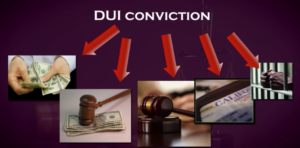Texas Drunk Motorcyclist Attorneys on Drunk Driving Motorcycle Accidents in Texas
Nearly since the advent of the motor vehicle, the extreme risks of operating a car, motorcycle or any other means of conveyance while intoxicated have been recognized and grimly documented through an infinite number of cases.
A good deal of responsibility lies with the compromised operator of the vehicle, and the law recognizes this. What you may not realize is that the law also recognizes the responsibility of drink-serving establishments and their role in causing your accident. More information here @ https://no1-lawyer.com/motorcycle-accident-lawyer-in-midland/
In any personal injury case, justice compels all parties to assume their true liability. The place of bars, nightclubs and taverns in causing drunk driving motorcycle accidents is recognized by law and should be recognized by you. Drunk driving accidents involving any motor vehicle can have disastrous consequences and precipitate devastating damages, but the risk is significantly increased when a motorcycle is involved. If you or a loved one has been injured or suffered death as a result of operating a motorcycle while intoxicated, contact our Texas drunk motorcyclist attorneys to ensure that all liable parties assume their appropriate responsibility. Henceforth, we shall examine exactly what that may be.
Dram shop cases have a cryptic name and a controversial history. Perhaps more than any other field of personal injury law, dram shop cases are the least known. Consequently, absent a competent drunk motorcyclist lawyer, defendants may not be apprised of what dram shop laws afford them.
Dram shop cases center around the responsibility of bars and taverns assume in serving drinks to customers. The law is clear on this point: bars are not permitted to over-serve their clientele. If an already drunk individual enters the bar, they are not permitted to serve him or her at all. The parameters are well-drawn. The legal blood-alcohol content level is 0.08% and below. Bars, taverns and nightclubs are not allowed to sell alcohol in any quantities that would shove a patron over this legal limit. The law is clear on that point. If injury or death occurs as a result of over-consumption, the following parties are permitted to bring suit against the alcohol-serving establishment:
A bereaved family member, in the case of death
Third parties suffering damages as a result of a drunk driver
When the first two types of plaintiffs bring suit, it is known as a first-party dram shop case. We will focus on this type of case going forward.
Many who do not have full, working knowledge of law and liability dubiously regard dram shop laws. The responsibility of drink-serving establishments often goes unexamined and the drunken motorcyclist is thought to carry the brunt of responsibility for riding while intoxicated. The law does not ignore the personal responsibility of the motorcycle’s operator, but neither does it leave the role of the establishment unexamined. An experienced drunk motorcyclist attorney can help you navigate the exact framework of these laws. see more information on this website @ https://caraccidentattorneysa.com/motorcycle-accidents/
Dram shop laws were drafted because litigators recognized alcohol’s mitigating influence on rational decision-making. The drinker, rationale dictates, is incapable of managing his or her own intake past a certain point. Therefore, the bartender and the establishment where he or she works assume the role of a caretaker and must take reasonable precautions, not to over-serve patrons. The state of Texas recognizes this responsibility to its full extent and will rightly allow prosecution of these bars, taverns, and nightclubs.
In order to bring a first-party dram shop case, the drink-serving establishment must be found to be more than 50% liable for your motorcycle accident or the motorcycle accident that resulted in the death of your family member. This is a firm answer to dram-shop skeptics who maintain that these lawsuits allow for frivolous suits. It ensures that dram-shop cases can only be brought against bars and clubs that act in a proven, negligent manner.
The sad reality is that most bars and nightclubs do not exercise even the most basic level of precaution where over-service is concerned. In almost every establishment, bartenders in Texas are required to pass a Texas Alcohol and Beverage Commission (TABC) exam in order to be allowed to serve alcohol. These exams instruct aspiring bartenders in the practice of identifying drunken patrons. Holders of a TABC certificate are well-informed and know not to serve drunk customers. Regardless, it is the responsibility of the establishment to instruct bartenders in the identification of drunken persons and to direct that such should be cut off from further drink service. Bars and clubs usually prefer to short-circuit this process by hiring TABC certified personnel who they know have been previously instructed in these matters.